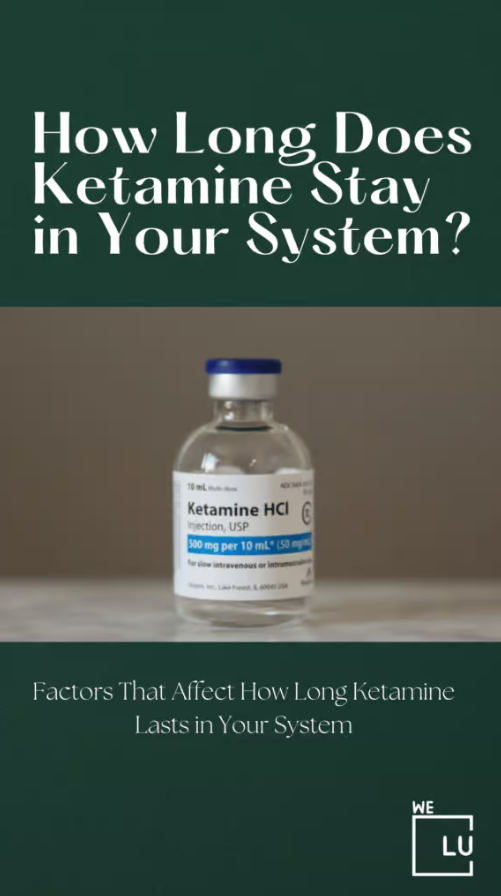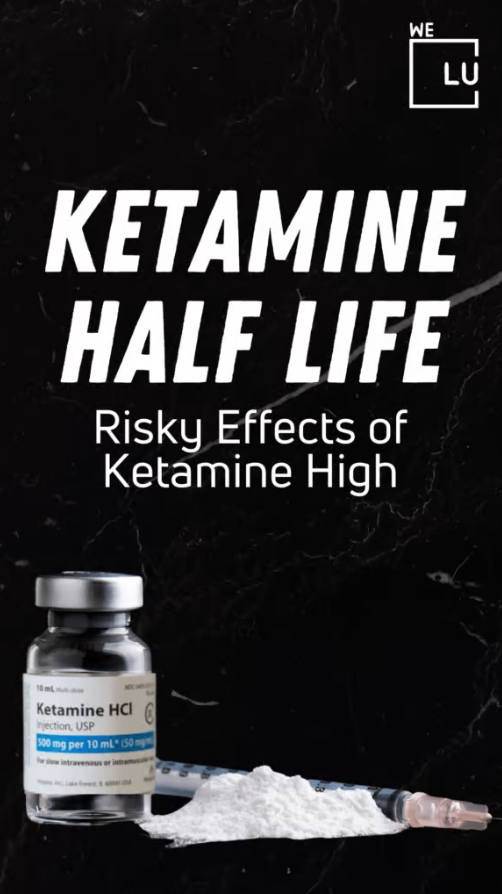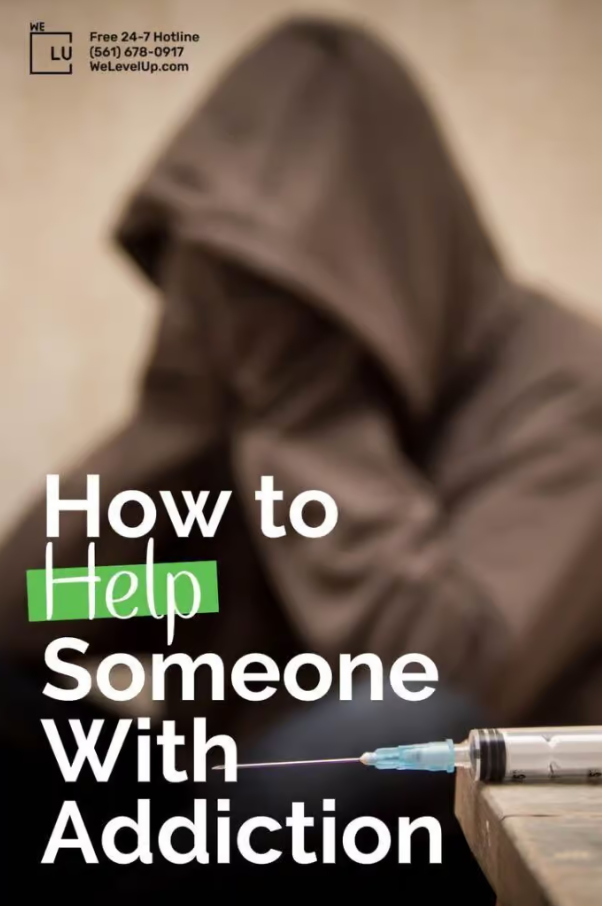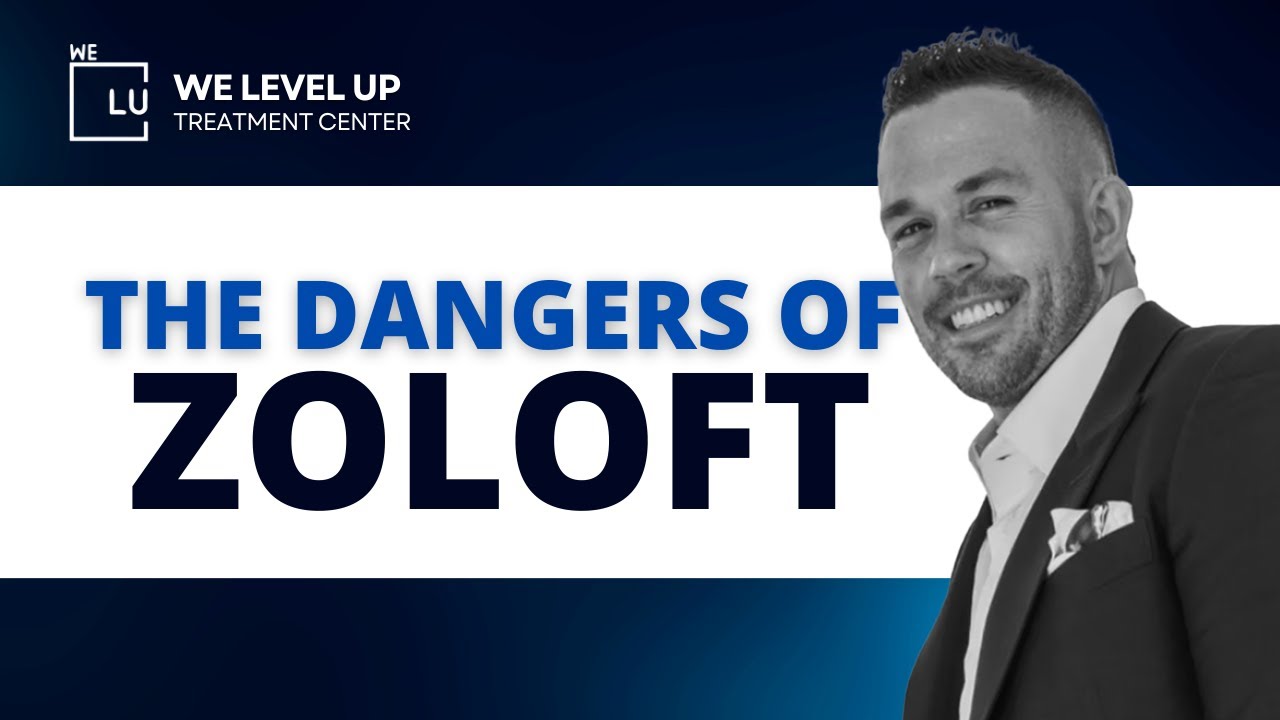What is Ketamine?
Ketamine addiction happens because it induces euphoria and alters perception; it also activates the brain’s reward system. Known as “K” or “Special K,” this drug can lead to tolerance, requiring higher doses for the same effects and increasing the risk of substance use disorder.
The FDA officially approves ketamine as a sole anesthetic during diagnostic and surgical procedures. However, it is not FDA-approved for treating any psychiatric disorders, despite some off-label use for conditions like depression. [1]
Get help for ketamine addiction at We Level Up Texas Treatment Center. Reclaim your life today! Call us 24/7 for a free and confidential consultation.
How Addictive is Ketamine?
While not as addictive as some other substances, ketamine can lead to tolerance, dependence, and psychological cravings, especially with regular or heavy use. It’s crucial to be aware of these risks and seek professional guidance if concerned about ketamine use.
Ketamine Effects
Some of the beneficial effects of ketamine include:
- Anesthetic properties.
- Treatment for chronic pain.
- Anti-inflammatory effects.
Ketamine Side Effects
Individuals may experience physiological and psychological ketamine side effects when used for medical or recreational purposes.
The most common side effects of ketamine are:
- Nausea.
- Vomiting.
- Increased heart rate.
- Elevated blood pressure.
- Hallucinations.
- Dissociation.
- Confusion.
- Dizziness.
- Blurred vision.
- Impaired coordination.
A couple of minutes after taking the drug, the user may experience increased heart rate and blood pressure, gradually decreasing over the next 10 to 20 minutes. When in this state, users experience:
- Involuntarily rapid eye movement.
- Dilated pupils.
- Salivation.
- Tear secretions.
- Stiffening of the muscles.
- Nausea.
How is Ketamine Used?
How ketamine is used depends on the form it is in. There are several ways to get ketamine. It might be a liquid or a powder. Users who do it illegally typically snort, smoke, inject, or add it to drinks. The most typical is a white powder that resembles cocaine in appearance. This type is well-liked since it makes it simple for users to regulate their dosage.
As a tablet form, ketamine is often cut with other drugs and sold as a variant of ecstasy. When used for medicinal purposes, the drug’s normal state is liquid ketamine, which is how the powdered version is produced.
There are four ways that ketamine is usually used. Oral use, swallowing, or adding ketamine to beverages creates the longest high with more potent effects but needs a larger dose.
Snorting, also called “taking bumps,” has a quicker impact with smaller doses but a shorter high. Ketamine users can inject ketamine, typically intramuscularly. When injected, the effects often occur within a few minutes and can last up to an hour. The rapid injection can be extremely risky, and it can be lethal when done intravenously.
Signs of Ketamine Addiction
If you notice several of these signs in someone, it may be an indication that they are struggling with addiction. Here are common signs to watch out for:
- Increased tolerance.
- Compulsive use despite negative consequences.
- Spending a significant amount of time obtaining, using, or recovering from ketamine.
- Neglecting responsibilities at work, school, or home.
- Social withdrawal or neglecting relationships.
- Loss of interest in previously enjoyed activities.
- Failed attempts to cut down or control ketamine use.
- Continuing to use ketamine despite awareness of physical or psychological health issues.
- Experiencing cravings for ketamine.
- Developing a preoccupation with obtaining and using ketamine.
- Engaging in risky behaviors while under the influence of ketamine.
- Experiencing withdrawal symptoms when not using ketamine.

How Long Does Ketamine Stay In Your System?
Ketamine usually leaves the body within 1 to 3 days, but its byproducts (metabolites) can be detected on drug tests for a more extended period. Standard drug tests may not detect ketamine, but specialized tests can.
| Drug Test Type | Detection Time for Ketamine |
|---|---|
| Urine Test | 2 to 4 days |
| Blood Test | Up to 48 hours |
| Saliva Test | 1 to 2 days |
| Hair Follicle Test | Up to 90 days (though less common for ketamine) |
Skip To:
Learn More:
Ketamine Withdrawal Symptoms
Ketamine withdrawal can occur when you have developed a dependence on the drug and then abruptly reduce or stop its use. The symptoms include:
- Cravings.
- Fatigue.
- Irritability.
- Depressed mood.
- Difficulty concentrating.
- Changes in sleep patterns.
- Increased sensitivity to pain.
- Anxiety.
- Sweating.
- Nausea and vomiting.
Can You Overdose on Ketamine?
Strong anesthetic ketamine can induce dissociation from pain and environment, but it also carries a danger of toxicity and overdose, mainly when used in large amounts.
It also causes euphoria and altered perception at lower doses, but at higher doses, it can cause a dissociative “out of body” experience known as the “K-Hole.” Ketamine use has also been connected to accidental injuries and deaths, including those from motor vehicle accidents.
Ketamine is potentially fatal in alcohol-intoxicated patients.
If you’re taking benzodiazepines or alcohol along with ketamine, it could make you extra sleepy or affect your breathing. Watch out if you’re also taking serotonin-related medications (like SSRIs or SNRIs) because mixing them with ketamine might increase the risk of serotonin syndrome, which is not good.
Serotonin syndrome symptoms include:
- Agitation.
- Confusion.
- Rapid heart rate.
- Dilated pupils.
- High blood pressure.
- Dilated pupils.
- Loss of muscle coordination or twitching muscles.
- Heavy sweating.
- Shivering or tremors.
- Diarrhea.
- Headache.
- Fever.
- Goosebumps.
- Involuntary muscle contractions.
- Elevated body temperature.
- Changes in blood pressure.
- Rapid changes in heart rate.
Combining ketamine with monoamine oxidase inhibitors (MAOIs) is the riskiest, as it can lead to a dangerous spike in blood pressure.
Ketamine Overdose Symptoms
The most common symptoms of a ketamine overdose include:
- Confusion.
- Hallucinations.
- Agitation.
- Seizures.
- Loss of coordination.
- Muscle stiffness.
- Rapid heartbeat.
- High blood pressure.
- Respiratory depression.
- Unconsciousness.
Though deaths linked with ketamine overdose and respiratory depression are relatively rare when the drug is used on its own, the risks become more significant when ketamine is used with other substances that also impact breathing.
If you believe you or another person are experiencing an overdose on ketamine or another drug, call 911 immediately.
Discover professional help from We Level Up Texas dual diagnosis addiction rehab and mental health therapists. Start getting support with a free call to our addiction hotline.
Get Help. Get Better. Get Your Life Back.
Searching for Accredited Drug and Alcohol Rehab Centers Near You? We Level Up Texas Is Opening Soon!
Even if you have failed previously and relapsed, or are in the middle of a difficult crisis, we stand ready to support you. Our trusted behavioral health specialists will not give up on you. When you feel ready or just want someone to speak to about therapy alternatives to change your life call us. Even if we cannot assist you, we will lead you to wherever you can get support. There is no obligation. Call our network hotline today.
FREE Addiction Hotline – Call 24/7Is Ketamine Addictive When Used for Depression?
Consult medical specialists about the consequences before considering ketamine therapy for depression. People should have informed discussions with their healthcare providers on the benefits, drawbacks, and acceptability of ketamine therapy for their particular circumstances, given the potential for instant antidepressant effects. This cooperative method guarantees that prospective applicants are knowledgeable and capable of making choices that support their general mental health and well-being.
Are Ketamine Troches Addictive?
Similar to other ketamine derivatives, ketamine troches have the potential to become addictive. Factors like dose, individual vulnerability, and frequency of usage all impact the likelihood of addiction. Troches are intended for regulated medical usage; nonetheless, abuse or unsupervised use may raise the risk of addiction, dependency, or tolerance. Individuals must use ketamine troches only as prescribed by healthcare professionals to minimize the risk of addiction.
What to Know About Ketamine Therapy for Addiction
To properly comprehend the efficacy of ketamine in treating addiction, additional meticulously designed research trials are required. Ketamine may have a variety of effects on addiction treatment, such as:
- Enhancing the brain’s capacity for growth and change.
- Upsetting particular brain networks linked to addiction.
- Reducing depressive symptoms.
- Augmenting the efficacy of psychological therapy.
Determining the precise mechanism by which ketamine produces these beneficial effects will be necessary for expanding its application in addiction therapy and may also shed light on other psychedelic treatments. But according to the National Institutes of Health (NIH), more research is still needed. [2]
What is Ketamine Psychosis?
Ketamine recreational users and abusers frequently experience a range of symptoms that resemble psychosis or a psychotic episode. A ketamine user experiencing a psychotic episode may speak, believe, or act in ways that are inconsistent with reality. After taking the Ketamine, they were more likely to have disorganized thinking and may have had trouble trying to finish simple words.
Loss of connection to reality is a hallmark of psychosis. Someone can have incorrect beliefs or delusions that are based on hallucinations. Their ability to perform at work, in the home, and society is substantially impacted by ketamine psychosis. Psychosis sufferers frequently have poor physical conditions. The greater the psychotic symptoms are, the higher the related level of impairment. People frequently have difficulty telling the difference between psychotic disorders like bipolar disorder or other similar disorders and drug-induced psychosis.

Ketamine Half-Life
Ketamine has a short half-life of 2 to 3 hours. Withdrawal occurs due to the body adapting to regular use, leading to dependence and resulting in symptoms like cravings and irritability.
Ketamine and its metabolites can be detected in drug tests, with urine tests showing traces for 2 to 4 days. The duration and intensity of withdrawal symptoms vary based on individual usage patterns.
Inpatient Ketamine Drug Rehab
A recovered user can discover how to live a healthy life without using ketamine by enrolling in an inpatient program.
Inpatient ketamine drug rehab programs may include:
- Detoxification services.
- Individual counseling.
- Group therapy sessions.
- Cognitive-behavioral therapy (CBT).
- 12-step or alternative recovery programs.
- Medical supervision and support.
- Dual diagnosis treatment for co-occurring mental health issues.
- Family therapy.
- Aftercare planning.
- Holistic and evidence-based therapies such as yoga or meditation.
Relapse during the early stages of treatment is less likely in the controlled setting because it restricts external stimuli and distractions. The assurance of a secure and efficient detox process is reinforced by the constant presence of medical monitoring, available round the clock.
This dedicated management not only assures the physical well-being of individuals undergoing ketamine drug detox but also provides a rapid response mechanism for any emerging difficulties or withdrawal symptoms. The 24/7 medical supervision in inpatient ketamine drug rehab programs is integral in managing the unpredictable nature of withdrawal, as it allows for the following:
- Timely adjustments to the treatment plan.
- Medication administration for withdrawal or mental health issue symptoms.
- Immediate intervention in the face of any unforeseen complications.
Opening Soon! First-Class Facilities & Amenities
World-Class High-Quality Addiction & Mental Health Rehabilitation Treatment
Coming Soon! Rehab Centers TourRenowned Addiction Centers. Serene Private Facilities. Inpatient Rehab Programs Vary.
FREE Addiction Hotline – Call 24/7Proven recovery success experience, backed by a Team with History of:
15+
Years of Unified Experience
100s
5-Star Reviews Across Our Centers
10K
Recovery Success Stories Across Our Network
- Low Patient to Therapist Ratio
- Onsite Medical Detox Center
- Comprehensive Dual-Diagnosis Treatment
- Complimentary Family & Alumni Programs
- Coaching, Recovery & Personal Development Events
Ketamine Detox
Medical detox is an essential first step in developing a comprehensive and personalized treatment plan for ketamine addiction. Acknowledging your addiction’s warning signs and admitting you need treatment is crucial. To determine the best course of action, this often involves having a trained addiction specialist evaluate you for substance use disorder.
Once detox is complete, a new doorway in ketamine addiction treatment opens up, which is referred to as an inpatient drug rehab or residential level of care. Our residential care program slowly and effectively introduces the individual into an atmosphere of therapeutic growth, marked by master’s level therapists, clinicians, group counselors, psychiatrists, and a community of like-minded individuals with the same aim: to attain sobriety and live a great life.
Programs for inpatient recovery offer a medically supervised, controlled environment that is available around the clock, facilitating the procedure of detoxification and treating both the physical and mental elements of addiction. Comprehending the underlying reasons for dependence and developing coping skills are crucial outcomes of both individual and group therapy. When it comes to treating the thinking patterns and behaviors connected to ketamine drug use, cognitive-behavioral therapy (CBT) is particularly successful.
Follow-up care is crucial once a formal treatment program is completed. Participating in support groups, creating a relapse prevention technique, and immersing in therapy may all be part of this. Ongoing healing requires adopting a comprehensive well-being perspective that includes good lifestyle choices.
Aftercare Program for Ketamine Addiction Treatment
One effective technique for treating addiction in patients is cognitive behavioral therapy or CBT. Patients who receive cognitive behavioral therapy are trained to identify negative self-perceptions, which can act as relapse triggers, as well as circumstances that may entice them to use the ketamine drug once more. Upon acknowledging this, individuals can create coping mechanisms to eliminate thoughts of relapse and steer clear of alluring circumstances. This type of treatment gives clients a sense of agency and accountability, which is crucial for maintaining motivation and permanently removing the ketamine drug from their lives.
We Level Up Texas Rehab Center Ketamine Addiction Treatment
Detoxification helps remove ketamine from the body, managing withdrawal symptoms and ensuring physical stabilization. However, it’s crucial to follow up with comprehensive addiction therapy.
As you detox from ketamine, maintain your healthy diet and exercise practices. Your body and mind need this healthy lifestyle to overcome detox challenges. To help with your treatment and recovery, our rehab amenities provide a range of activities, rejuvenating meals, and peaceful surroundings. Recreational workouts may also be a helpful diversion from detox symptoms.
Our modern detox facility and round-the-clock nursing care ensure a safe and comfortable environment for rest and recovery. During detox, you can participate in on-site We Level Up Texas facility programs, such as lectures, workshops, and group therapy. You can learn vital information from these sessions about your substance use problem and long-term healing strategies.
If you’re seeking assistance with your rehab journey, reach out to a We Level Up Texas treatment professional today.
Get a free rehab insurance check without any obligation.
Opening Soon! World-class, Accredited, Anticipated 5-Star Reviewed, Effective Addiction & Mental Health Programs. Complete Behavioral Health Inpatient Rehab, Detox plus Co-occuring Disorders Therapy.
FREE Addiction Hotline – Call 24/7End the Addiction Pain. End the Emotional Rollercoaster. Get Your Life Back. Start Drug, Alcohol & Dual Diagnosis Mental Health Treatment Now. Get Free No-obligation Guidance by Substance Abuse Specialists Who Understand Addiction & Mental Health Recovery & Know How to Help.
“I Turned My Life Around from Drug, Alcohol Addiction, Loneliness, Despair, and Anxiety to Full Recovery.” — Testimonial Video
Start a New Life
Begin with a free call to an addiction & behavioral health treatment advisor. Learn more about our dual-diagnosis programs. The We Level Up treatment center network delivers recovery programs that vary by each treatment facility. Call to learn more.
- Personalized Care
- Caring Accountable Staff
- World-class Amenities
- Licensed & Accredited
- Renowned w/ 100s 5-Star Reviews
We’ll Call You
Search We Level Up Texas Ketamine Addiction Treatment, Mental Health Topics, and Resources
Sources
- FDA warns patients and health care providers about potential risks associated with compounded ketamine products, including oral formulations, for the treatment of psychiatric disorders – Food and Drug Administration (FDA)
- Rosenbaum SB, Gupta V, Patel P, et al. Ketamine. [Updated 2023 May 26]. In: StatPearls [Internet]. Treasure Island (FL): StatPearls Publishing; 2023 Jan-. Available from: https://www.ncbi.nlm.nih.gov/books/NBK470357/
- Ivan Ezquerra-Romano I, Lawn W, Krupitsky E, Morgan CJA. Ketamine for the treatment of addiction: Evidence and potential mechanisms. Neuropharmacology. 2018 Nov;142:72-82. Doi: 10.1016/j.neuropharm.2018.01.017. Epub 2018 Jan 12. PMID: 29339294.
- Liu Y, Lin D, Wu B, Zhou W. Ketamine abuse potential and use disorder. Brain Res Bull. 2016 Sep;126(Pt 1):68-73. Doi: 10.1016/j.brainresbull.2016.05.016. Epub 2016 May 31. PMID: 27261367. Research related to Can you get addicted to ketamine? Ketamine addiction risk; ketamine for addiction; addicted to ketamine.
- Le TT, Cordero IP, Jawad MY, Swainson J, Di Vincenzo JD, Jaberi S, Phan L, Lui LMW, Ho R, Rosenblat JD, McIntyre RS. The abuse liability of ketamine: A scoping review of preclinical and clinical studies. J Psychiatr Res. 2022 Jul;151:476-496. Doi: 10.1016/j.jpsychires.2022.04.035. Epub 2022 May 10. PMID: 35623124.
- Yavi M, Lee H, Henter ID, Park LT, Zarate CA Jr. Ketamine treatment for depression: a review. Discov Ment Health. 2022;2(1):9. Doi: 10.1007/s44192-022-00012-3. Epub 2022 Apr 15. PMID: 35509843; PMCID: PMC9010394.
- Mandal S, Sinha VK, Goyal N. Efficacy of ketamine therapy in the treatment of depression. Indian J Psychiatry. 2019 Sep-Oct;61(5):480-485. Doi: 10.4103/psychiatry.IndianJPsychiatry_484_18. PMID: 31579184; PMCID: PMC6767816.
- Drug Fact Sheet: Ketamine – Drug Enforcement Administration (DEA)
- Ketamine Fast Facts – Department of Justice (.gov)








